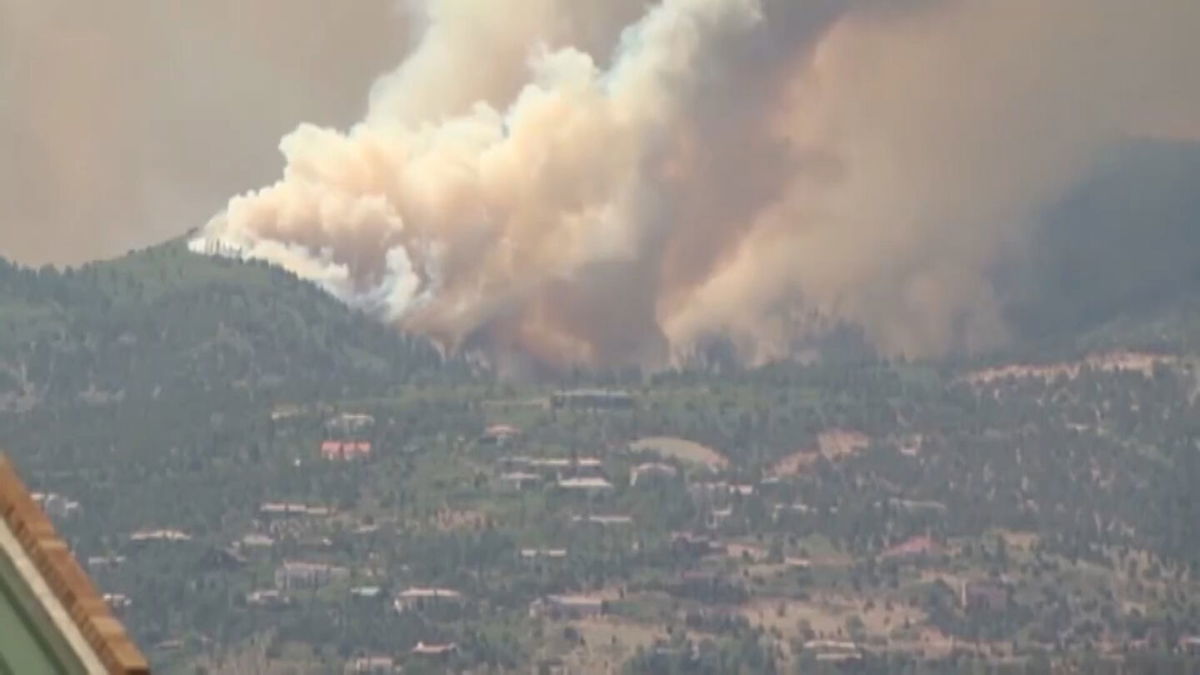A.I. cameras could help address growing wildfire concerns

COLORADO SPRINGS, Colo. (KRDO) -- Artificial intelligence could soon be used to detect wildfires before they get out of hand.
Colorado wildfires are a growing concern as the season lengthens and the workforce diminishes, and legislators are taking notice. Multiple bills have been introduced to combat the increasing obstacles.
“It really truly is a perfect storm of longer months with wildfires, less people to tackle it and less educators to train them,” said Democratic State Senator Sonya Jaquez Lewis (District 17).
Ben Miller, the director of the Center of Excellence for Advanced Technology Aerial Firefighting within the Colorado Division of Fire Prevention and Control, is tasked with finding ways to mitigate and prevent wildfires through advanced technology.
“The most beneficial thing that we can do is invest and work towards modernization,” Miller said.
Proposed Senate Bill 23-032 hopes to do just that. If passed, it would establish a wildfire detection technology system pilot program using A.I. infrared cameras.
The Colorado Division of Fire Prevention and Control has two ways to detect wildfires. The first is FireGuard — a National Guard detection system, using military-operated satellites and civilian resources. The other are planes with infrared technology. While both have been effective, they are also limiting, Miller said.
“The two capabilities I spoke of before don't have the capability to see all the time, so cameras on a mountain ridge looking out across the landscape improve upon our ability to detect fires early,” he said.
About 50 A.I. cameras are being proposed through this four-year, $2 million project. They would be placed throughout the state with the ability to detect smoke and flames as small as a campfire.
“We can teach A.I. to look for the things that our human counterparts would look for, like a plume of smoke or other disruptions within the video stream that might suggest that there's an ignition in that area,” Miller said. “Then they can automatically tell a pre-designated person or group of people that we have a suspected ignition.”
If the pilot program is successful, it could expand. Right now, Southern California, which this program is based off of, uses more than 1,000 cameras to detect wildfires.
But detection is only one solution to the multi-faceted problem wildfires have become in Colorado. No matter how successful A.I. cameras are, you need people to respond to fires, and staffing within the industry is declining.
“With more and more folks living in the wildland urban interface, the problem is much larger and more complex,” Miller said. “One of the appropriate responses to that is increasing staff.”
According to Jaquez Lewis, the median age in the fire mitigation and timber industry is 60 years old. It’s why she is sponsoring Senate Bill 23-005, which will bring more funding and education to the wildfire mitigation workforce.
The proposed legislation would develop educational material regarding career opportunities in forestry and wildfire mitigation for high school students, the creation of a workforce development program to hire interns, new forestry programs in colleges and the recruitment of more fire prevention educators.
“We have to get that educational pipeline going,” she said. “We have to step up and we have to take advantage of technology where we can.”
Nearly a year since the Marshall fire started, these two proposed bills join three others that have already been filed related to wildfire mitigation and prevention.
“If we don't address this, we could start to lose many more communities besides Lewisville and Superior — that being over a $1 billion loss to the state,” Jaquez Lewis said. “We could see much more of that if we don't do something about this.”
